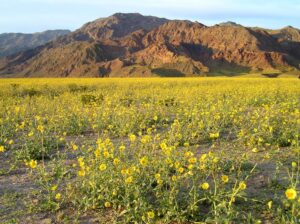Diversity – Broader Than We Expect?
 Each month, Pope Francis asks people around the world to join him in prayer for a particular intention. This month, January 2024, he is asking us to pray for the gift of diversity in the Church. Specifically, his prayer is,
Each month, Pope Francis asks people around the world to join him in prayer for a particular intention. This month, January 2024, he is asking us to pray for the gift of diversity in the Church. Specifically, his prayer is,
“We pray that the Holy Spirit may help us to recognize the gift of different charisms within the Christian community and to discover the richness of different traditions and rituals in the Catholic Church.”
This prayer is focused on diversity within the Christian community, with its varied history, traditions, and rituals. As a worldwide community, people from multiple traditions, cultural understandings, and expectations all share in the same fundamental set of beliefs and practices. However, the ways those beliefs and practices are expressed can vary dramatically.
When my husband and I were first married, for example, we often found that we were divided by the bonds of a common religion. We were both Catholic from birth and grew up in actively Catholic families and communities. But the specifics of which customs, which saints, and which fundamental requirements and expectations of Catholic life were most important differed in many ways. Northern European Irish/German traditions were different from Mexican-American traditions. It took many years to recognize and anticipate the expected practices from our childhood experience and know which ones were going to be more important to each of us. With experience and many years of practice, we mostly have this worked out, but we still trip up from time to time.
As a Church, we have a long way to go, but the reforms of Vatican II have given a great foundation and permission for us to recognize and value the incarnation of our God within the many cultures of our world. We can now pray for diversity and acceptance of the many charisms, the gifts of the Spirit in our daily lives. We no longer need to demand that all peoples around the world understand or celebrate God’s presence in human history in exactly the same way, nor that they live their lives in the same way.
This struck me as an apt insight when I read the story of Jonah and his arrival in the ancient city of Nineveh with a message from God. (Jon 3:1-5, 10) Nineveh was the capital city of the Assyrian empire. It was very large – a three day walk to cross from one side of it to the other. The Assyrians were long-time enemies of the Israelites. They had battled more than once. Assyrians had actually destroyed the Northern Kingdom of Israel in battle. Many of the people of northern Israel had been killed, many driven into exile. Jonah and others in his community hated the Assyrians. No love was lost between the people of Assyria and the people of Israel.
Imagine Jonah’s surprise and horror when the Lord told him to go and warn the people of the enemy capital that their city was to be destroyed because of their evil behavior. That was exactly what he would have cheered! Destruction of an enemy’s capital, a warning not to mess with one’s own God – who could ask for more? And for this to happen without any loss of life among one’s own people? Fantabulous!
But no. God wanted the people of Nineveh to be warned, to have a chance to escape this horror. So, he called Jonah. Jonah tried to escape his task, boarding a ship to cross the Mediterranean, but that didn’t work out. He ended up in the belly of a whale for a bit, after having been tossed overboard by the crew and then being deposited back on the shore where he started. At that point, he gave up and headed to Nineveh. Entering the city, he began to proclaim its coming destruction. In only one day, the city and its leaders took heed. They proclaimed a fast, put on simple, uncomfortable, penitential clothing (sackcloth), and changed their behavior. With this quick response, there was no longer any reason to punish the city, so God relented and all was well.
Was Jonah happy? Not at all! He had hoped the city would be destroyed. He went away and pouted for a while. But again, how he got over it is another story for another day.
What strikes me about this story is that God did not pay attention only to the people of one culture, with one set of traditions. God cared about the people of Nineveh too, enough to send an unwilling prophet to call them to repentance. Though not members of the Chosen People, they were also a people about whom God cared enough to call them to reform and live.
The city of Nineveh still exists. It has a different name now. We call it Mosul. And God still cares for the people of Mosul and the rest of the Middle East, with all of their different traditions.
How about Jesus? Were his followers all from the same background or occupation? Not really. Some were fishermen. One was a tax collector. One was involved in politics – on the more revolutionary side. Saul/Paul was called after the resurrection. He was a Pharisee, an educated man, a student of the Law, who was active in persecution of the early followers of Jesus.
Mark tells us about the call of Peter, Andrew, James, and John. (Mk 1:14-20) They were fishermen from two different families who were working with their families along the shore of the Sea of Galilee when they met Jesus. Jesus himself was a carpenter, a tradesman. All were men who were accustomed to working and supporting themselves and their families. When Jesus walked by the boats as they were cleaning up after fishing – repairing nets, getting everything ready for the next day’s work – he called them to follow him. Amazingly, without hesitation, they left their nets and followed him. They didn’t reject their families or communities, but they left the nets and fishing to follow and learn from him. His other followers also left their jobs immediately when he called them. There was something compelling about the man and his invitation. He was open to them, just as they were and with their own particular backgrounds and family stories. Others who followed him but weren’t in the inner circle were also a diverse group. Women, men, well-to-do, middle-class, and poor. All were represented among Jesus’ followers. He was also recognized as a special person by non-Jews. Remember the Roman centurion whose son was healed by Jesus?
The followers of Jesus were a diverse lot. Jesus may initially have thought he was sent only for the Hebrew people, but his encounters with the Samaritan woman at the well and the Syrophoenician woman who begged for healing for her child opened his eyes to the fact that God cares for all people, not just those who worshiped at the temple in Jerusalem. God cares for humans in all our diversity.
That being the case, when do we need to start welcoming and treasuring our diversity? Right now.
St. Paul reminded the folks in Corinth that time is passing quickly. (1 Cor 7:29-31) It is still passing quickly. We don’t know the day or the hour when our time will end. We don’t know when the Lord will come again. We must live the calling of our life now, welcoming the diverse members of the human community whom we meet along the way.
We don’t have time to hold on to old ways or restrictions. The freedom of the children of God allows us to step beyond our regular restrictions and expectations. We can be open to see God’s hand in the lives of others who are not part of our immediate family or community. We can see God’s face in the immigrant, the undocumented, the hungry, the little ones in our churches and schools who are still learning the social rules, the neighbor across the back fence, the person who cuts ahead of us in line at the grocery store, the addict begging on the street. God is present in each one. God loves the diversity of humanity and hopes we are free enough to enjoy it too.
It’s going to take time for all of us to feel comfortable with the myriad forms of diversity among our fellow human sisters and brothers. Our own cultural traditions and explanations of how-things-are will continue to jump to the forefront when we encounter other ways of being and of doing things. I pray that we can become open to listen deeply to those we meet and hear the goodness within each, which is reaching out to meet the goodness within us. When cultural practices diminish the freedom and well-being of others, it’s important to question them. The same is as true for practices in our culture as for those in other cultures. However, we must always remember that God is the creator of all and through all shines forth in marvelous beauty and colorful light.
May the Holy Spirit, still at work in the Church and in the larger Christian community, lead us to newly recognize, cherish, and support the many gifts, talents, and richness of our many world traditions and varied rituals. May we be unafraid to see our expectations of roles and expression of our deepest selves be broadened by exposure to other ways of life. The diversity is greater than we might imagine. The Holy Spirit will lead us as we explore the marvels of God’s human creation. We just need to be willing to open our hearts and see.
Readings for the Third Sunday in Ordinary Time – Cycle B
Read More















